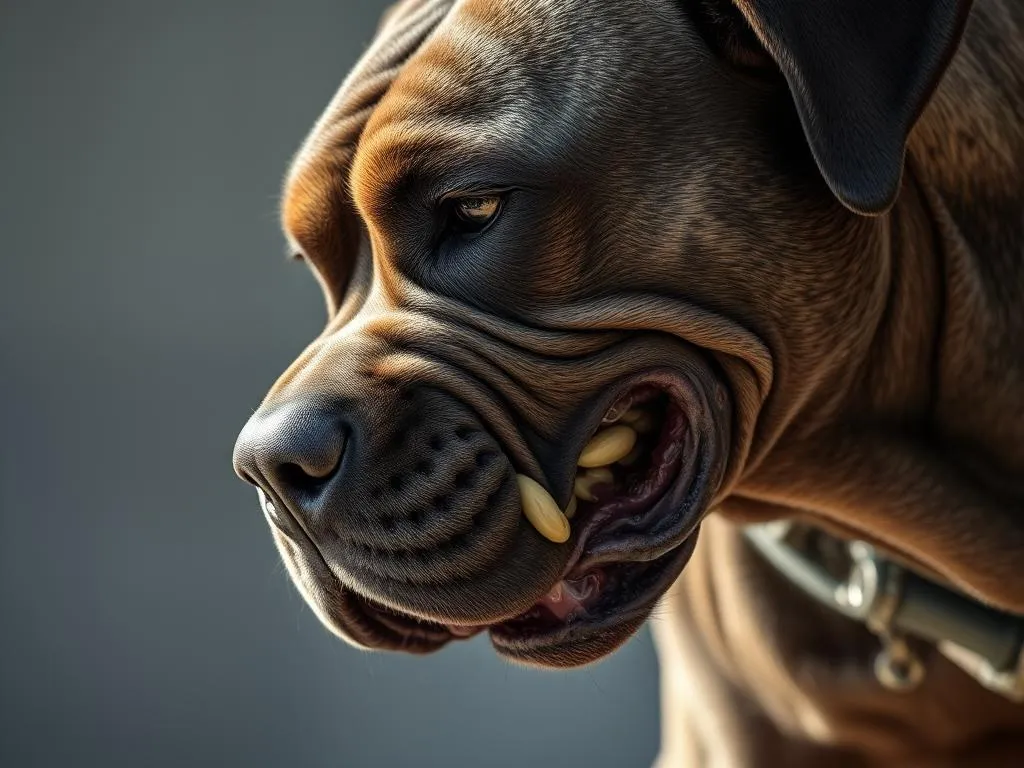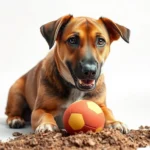
Introduction
The Cane Corso is a breed that commands attention with its impressive stature and powerful presence. Known for its loyalty and protective nature, this breed has become increasingly popular among dog lovers worldwide. However, one crucial aspect of the Cane Corso that potential owners must understand is its bite force. Recognizing the significance of bite force in dogs, especially in a breed with such physical strength, is essential for responsible ownership. In this article, we will delve into the history, characteristics, and temperament of the Cane Corso, explore what bite force means, and examine the implications of the Cane Corso’s high bite force for owners and families.
Understanding the Cane Corso
Breed History
The Cane Corso, also known as the Italian Mastiff, has its roots deeply embedded in the history of Italy. This ancient breed descended from the Roman Molosser dogs and was originally bred for various purposes, including hunting large game and guarding livestock. Historically, Cane Corsos served as working dogs on farms, helping to protect property and assist in herding. Their robust build and keen instincts made them invaluable companions to farmers and landowners.
Physical Characteristics
When it comes to physical characteristics, Cane Corsos are truly remarkable. Here are some key features:
- Size and Weight: Adult Cane Corsos typically weigh between 90 to 120 pounds and stand about 24 to 28 inches tall at the shoulder. Their muscular build contributes to their imposing appearance.
- Coat Types and Colors: The breed has a short, dense coat that comes in various colors, including black, fawn, and brindle. Some may have markings that enhance their distinctive look.
- Distinctive Features: The Cane Corso is characterized by a broad head, strong jaws, and a powerful neck. Their muscular physique allows for great strength and agility, making them well-suited for various tasks.
Temperament and Behavior
The temperament of the Cane Corso is a blend of loyalty, intelligence, and protectiveness. Here are some essential traits:
- General Temperament Traits: Cane Corsos are known to be confident and loyal. They form strong bonds with their families and often exhibit protective instincts towards loved ones.
- Socialization Needs: Early socialization is crucial for Cane Corsos. Exposure to various environments, people, and other animals helps them develop into well-rounded pets.
- Common Behavior Patterns: While they are generally calm and affectionate, Cane Corsos can be reserved with strangers. Proper training and socialization can mitigate any potential aggression.
What is Bite Force?
Definition of Bite Force
Bite force refers to the pressure exerted by a dog’s jaw when it bites down. Measured in pounds per square inch (PSI), bite force can vary significantly among dog breeds. Understanding bite force is essential for evaluating a dog’s potential for aggression and the responsibilities that come with ownership. High bite force can be a concern if not managed correctly, especially in powerful breeds like the Cane Corso.
Measuring Bite Force
There are several methods used to measure bite force in dogs, including:
- Pressure Sensors: Specialized devices can be placed in a dog’s mouth to measure the force exerted during a bite.
- Force Gauges: Handheld devices that record the pressure applied by a dog’s jaw when biting down on a specific object.
These tools help in understanding the strength of a dog’s bite, which is crucial for evaluating breeds with high bite potential, like the Cane Corso.
Cane Corso Bite Force Overview
Cane Corso Bite Force Statistics
When we look at Cane Corso bite force statistics, the numbers are quite impressive. The average bite force of a Cane Corso is estimated to be around 700 PSI, which is significantly higher than many other breeds. For comparison, here are some bite force statistics of other breeds:
- Rottweiler: Approximately 328 PSI
- Pit Bull: Approximately 235 PSI
- German Shepherd: Approximately 238 PSI
This comparison highlights the Cane Corso’s formidable bite force, making it one of the strongest among dog breeds.
Factors Influencing Bite Force
Several factors can influence a Cane Corso’s bite force:
- Genetics and Breeding: The genetics of the dog play a crucial role in determining bite force. Responsible breeding practices can help ensure that the breed maintains its strength without compromising temperament.
- Role of Training and Socialization: Proper training and early socialization can help mitigate aggressive tendencies that might be exacerbated by high bite force. A well-trained Cane Corso is less likely to exhibit unwanted behaviors.
- Environmental Factors: The environment in which a Cane Corso is raised can impact its behavior and bite force. A calm, structured environment with positive reinforcement training can lead to a more balanced dog.
Implications of Cane Corso’s High Bite Force
Importance for Owners
Owning a Cane Corso comes with significant responsibilities, especially considering its high bite force. Potential owners must understand the necessity of proper training and socialization. Owners should be prepared to invest time and effort into training their Cane Corsos to ensure they develop into well-mannered companions.
Safety Considerations
With great power comes great responsibility. The risks associated with high bite force cannot be overlooked. Here are some essential strategies for ensuring safety:
- Supervision: Always supervise interactions between your Cane Corso and children or other pets. This can prevent potential incidents stemming from misunderstandings.
- Training: Invest in professional training to help your Cane Corso learn commands and appropriate behaviors. Training can significantly reduce the risk of aggressive incidents.
- Socialization: Introduce your Cane Corso to various environments, people, and animals to create positive experiences and reduce fear or anxiety.
Legal and Insurance Implications
The high bite force associated with Cane Corsos raises important legal and insurance considerations. Many areas have breed-specific legislation (BSL) that may restrict or regulate ownership of certain breeds, including the Cane Corso. Additionally, homeowners’ insurance may be affected by ownership of a breed with a high bite force, resulting in increased premiums or coverage exclusions.
Training and Socialization for Cane Corsos
Basic Training Tips
Training a Cane Corso is essential for responsible ownership. Here are some basic training tips:
- Start Early: Begin training as early as possible to establish good habits.
- Use Positive Reinforcement: Reward-based training techniques are effective in encouraging desired behaviors.
- Consistency is Key: Ensure that all family members apply consistent commands and rules to avoid confusion.
Socialization Strategies
Socialization is crucial for Cane Corsos to thrive. Here are some strategies:
- Expose to Different Environments: Take your Cane Corso to parks, pet stores, and busy streets to expose them to different sights and sounds.
- Introduce to Other Animals: Gradual introductions to other pets can help your Cane Corso learn to interact positively with them.
- Meet New People: Encourage your Cane Corso to meet various people, including children and adults, to foster friendliness.
Behavioral Issues Related to Bite Force
High bite force can lead to specific behavioral issues if not managed properly. Common issues include:
- Aggression: Dogs may display aggression if they feel threatened. Proper training and socialization can mitigate this behavior.
- Fearfulness: Cane Corsos that are not adequately socialized may develop fear-based aggression. Gradual exposure to different stimuli can help reduce fear.
Solutions and behavioral modification techniques include working with a professional dog trainer or behaviorist to address these issues effectively.
Caring for a Cane Corso
Health Considerations
Caring for a Cane Corso involves being mindful of their health. Here are some common health issues to consider:
- Hip Dysplasia: This genetic condition can affect large breeds, including Cane Corsos. Regular veterinary check-ups can help monitor their joint health.
- Bloat: This life-threatening condition can occur in deep-chested breeds. Feeding smaller, more frequent meals can help prevent it.
Nutrition and Diet
A proper diet is vital for maintaining the health and muscle mass of a Cane Corso. Here are some recommendations:
- High-Quality Protein: Look for dog food rich in high-quality protein to support muscle development.
- Balanced Diet: Ensure the diet includes a balance of carbohydrates, fats, vitamins, and minerals.
Feeding tips for large breeds include avoiding overfeeding to prevent obesity, which can exacerbate joint issues.
Exercise Needs
Cane Corsos require regular exercise to stay healthy and happy. Here are some recommendations:
- Daily Exercise: Aim for at least 60-90 minutes of exercise each day, which may include walks, playtime, and training sessions.
- Engaging Activities: Activities such as agility training or fetch can help keep your Cane Corso mentally and physically stimulated.
Conclusion
Understanding the Cane Corso bite force is essential for anyone considering adding this powerful breed to their family. With their impressive strength comes the responsibility of training, socialization, and proper care. By recognizing the implications of their bite force and committing to responsible ownership, Cane Corso owners can enjoy a fulfilling relationship with their loyal companions. Always seek professional guidance when needed to ensure both the safety of your family and the well-being of your Cane Corso.
FAQs
What is the average bite force of a Cane Corso?
The average bite force of a Cane Corso is approximately 700 PSI.
How does the Cane Corso’s bite force compare to other breeds?
The Cane Corso’s bite force is significantly higher than many other breeds, including Rottweilers and Pit Bulls.
Are Cane Corsos dangerous due to their bite force?
Cane Corsos are not inherently dangerous, but their high bite force necessitates responsible ownership, training, and socialization.
What should I do if my Cane Corso displays aggressive behavior?
If your Cane Corso exhibits aggressive behavior, consider consulting a professional dog trainer or behaviorist to address the issue.
How can I ensure my Cane Corso is well-socialized?
To ensure your Cane Corso is well-socialized, expose them to various environments, people, and animals from an early age, and consider enrolling them in socialization classes.









